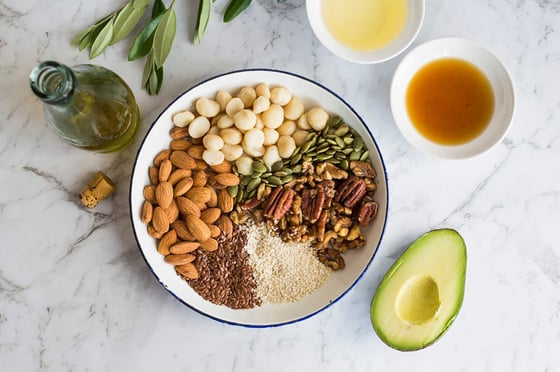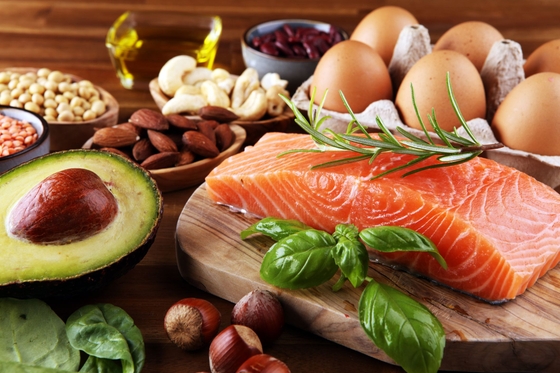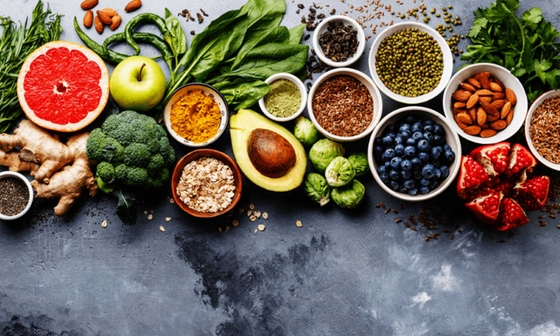
Sorting fact from fiction – seed oils and coconut oil
Blog: Friday 23 May 2025
Which cooking oils are good for your health?
There’s a lot of confusion online about which cooking oils are good for your health and which ones you should avoid. Some claim seed oils are harmful or “toxic,” while others promote coconut oil as a superfood. So, what does the science really say?
The truth is, seed oils like sunflower, canola and soybean are rich in unsaturated fats that support heart health. On the other hand, coconut oil is high in saturated fat and can raise LDL (bad) cholesterol. Choosing oils based on their fat composition is important. Evidence shows that replacing saturated fat with monounsaturated and polyunsaturated fats can lower your LDL cholesterol and reduce the risk of heart disease.
Let’s break down the facts and bust some myths about oils.
Are seed oils bad?
No at all! In fact, seed oils like sunflower, canola, soybean and safflower are high in polyunsaturated and monounsaturated fats. These fats support heart health and are recommended for cooking and dressings.
Seed oils are stable, versatile and nutrient-rich. Claims that they are “toxic” or cause inflammation are not supported by scientific evidence. Instead, recent research, including reviews by the World Health Organisation, consistently demonstrates that higher intakes of polyunsaturated fat, including omega-6 fats like linoleic acid, reduces the risk of heart disease and all-cause mortality, or has a neutral effect.
What about coconut oil?
Coconut oil contains around 90% saturated fat. Although some types of saturated fat in coconut oil behave differently in the body, it still raises LDL cholesterol. The Heart Foundation recommends using oils high in unsaturated fats instead.
What about processing?
One common concern about seed oils is that they’re “highly processed”. Processing methods like cold-pressing or expeller-pressing are used to extract oil from seeds, and many oils are then lightly refined to improve shelf life, flavour and cooking stability.
Refining doesn’t strip oils of their healthy fats. In fact, oils like canola and sunflower still retain their beneficial monounsaturated and polyunsaturated fats after processing.
If you prefer a less processed option, extra virgin olive oil is a great choice. It’s minimally processed and packed with heart-healthy nutrients. Overall, both refined and unrefined seed oils can play a healthy role in your diet.
What oils should I choose?
Go for:
- Extra virgin olive oil
- Canola oil
- Sunflower oil
- Peanut oil
- Avocado oil
These oils contain healthy fats and are suitable for most types of cooking.
Avoid or limit:
- Coconut oil
- Palm oil
- Butter
The overall pattern of fat consumption matters more than individual foods – choose heart-healthy oils, rich in monounsaturated and polyunsaturated fats most often. For more information, check out our Fats, oils and heart health page.
References
- Heart Foundation. Dietary fat and heart healthy eating: Dietary position statement. 2019. https://www.heartfoundation.org.au/for-professionals/nutrition-position-statements
- De Souza R, Zulyniak M, Kazemi M, Ali R, Bierbrier R, Williams N et al. Polyunsaturated fatty acids intake and risk of all-cause mortality, cardiovascular disease, breast cancer, mental health, and type 2 diabetes: a systematic review and meta-analysis of prospective cohort studies. Geneva: World Health Organization; 2022. Licence: CC BY-NC-SA 3.0 IGO.
- Mazidi M, Shekoohi N, Katsiki N, Banach M. Omega-6 fatty acids and the risk of cardiovascular disease: insights from a systematic review and meta-analysis of randomized controlled trials and a Mendelian randomization study. Arch Med Sci. 2021;18(2):466-479. Published 2021 Apr 24. doi:10.5114/aoms/136070
- Marklund M, Wu JHY, Imamura F, et al. Biomarkers of Dietary Omega-6 Fatty Acids and Incident Cardiovascular Disease and Mortality. Circulation. 2019;139(21):2422-2436. doi:10.1161/CIRCULATIONAHA.118.038908
You might also be interested in...

Fats, oils and heart health
While eating fatty food may sound like a bad thing, some fats can play an essential role in keeping your heart healthy.

Omega fats and heart health
Omega-3 and omega-6 are essential polyunsaturated fats that support heart health. Eat oily fish 2–3 times a week and include plant-based sources like chia, flaxseeds, and walnuts.

How to follow a heart healthy eating pattern
Follow these easy tips to boost your heart health and embrace a heart-healthy eating pattern.
Last updated15 August 2025